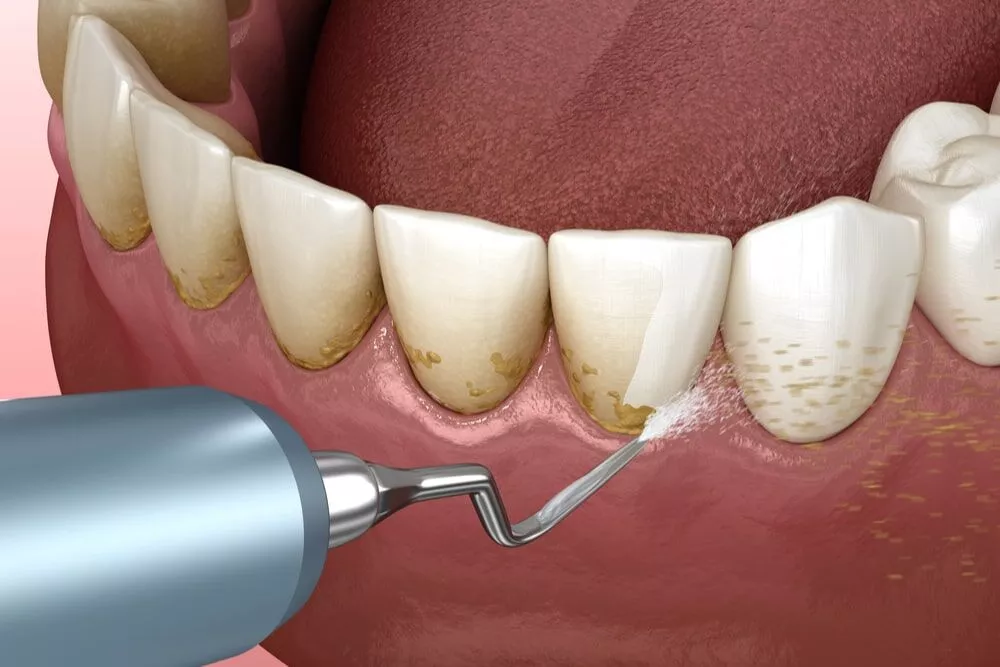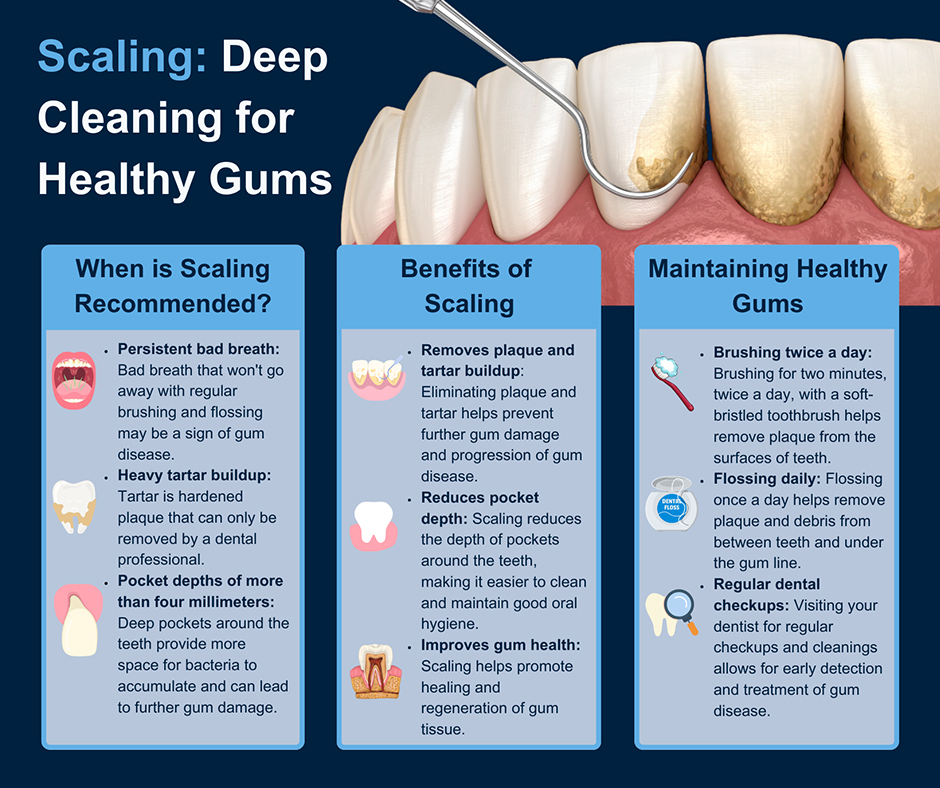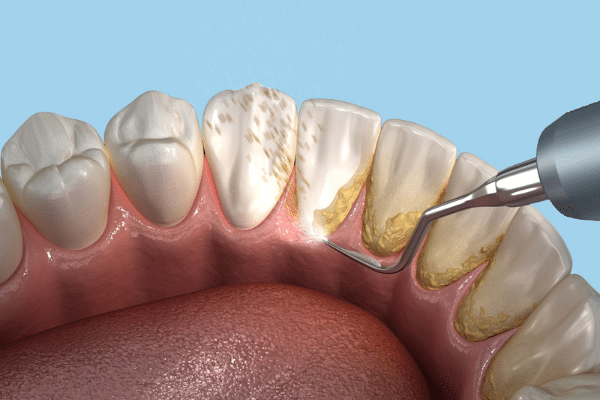Teeth Cleaning and Scaling Services: What You Need to Know
Maintaining oral health is crucial for overall well-being, and one of the most important steps in ensuring a healthy smile is teeth cleaning and scaling. These services not only help in maintaining the appearance of your teeth but also in preventing serious dental issues like gum disease, cavities, and tooth loss. In this article, we’ll dive deep into what teeth cleaning and scaling services are, why they are essential, and how they can contribute to your long-term dental health.

What is Teeth Cleaning?
Teeth cleaning, also known as prophylaxis, is a routine dental procedure that involves the removal of plaque, tartar, and stains from the teeth surfaces. This procedure is typically performed by a dental hygienist or dentist, and it’s designed to help maintain oral hygiene by preventing gum disease, cavities, and bad breath.
What Does a Teeth Cleaning Involve?
A typical teeth cleaning session usually involves the following steps:
- Examination: The hygienist will first examine your teeth and gums to check for signs of disease or cavities.
- Plaque Removal: Using specialized tools, your hygienist will remove plaque and tartar buildup that regular brushing and flossing may miss.
- Polishing: After cleaning, your teeth are polished to remove surface stains and leave them feeling smooth.
- Flossing: The hygienist will then floss your teeth to remove any remaining debris between your teeth.
- Fluoride Treatment: In some cases, a fluoride treatment will be applied to help protect your teeth from future decay.
Teeth cleaning is usually recommended every six months, but your dentist may suggest more frequent visits based on your oral health.

What is Scaling?
Scaling, or deep cleaning, is a more advanced form of teeth cleaning. While routine cleaning addresses surface plaque and tartar, scaling goes deeper, targeting the areas below the gumline where bacteria and tartar may accumulate. It is often performed when there are signs of gum disease or periodontal disease.
How Does Scaling Work?
Scaling typically involves two primary techniques:
- Manual Scaling: The dentist or hygienist uses a hand-held tool to physically remove plaque and tartar from below the gumline.
- Ultrasonic Scaling: This technique uses a high-frequency sound wave to break up plaque and tartar, which is then washed away with water.
After scaling, the gums may bleed slightly, and there might be some mild discomfort, especially if gum disease has progressed.

Scaling vs. Cleaning: What’s the Difference?
While both cleaning and scaling aim to improve your oral health, they differ in intensity and purpose. Here’s a comparison:
| Feature | Teeth Cleaning | Scaling |
|---|---|---|
| Purpose | Preventative care for plaque and tartar | Treatment for gum disease or tartar below the gumline |
| Frequency | Every 6 months or as recommended by the dentist | Typically needed when gum disease is present or tartar buildup is severe |
| Procedure | Surface cleaning with minimal discomfort | Deep cleaning with possible discomfort, especially if gum disease is present |
| Tools Used | Scaling tool, polishing equipment | Scaling tools, ultrasonic devices |
| Post-Treatment | Little to no discomfort | Possible swelling, bleeding, and sensitivity |
Scaling is recommended if you have gum disease or have experienced significant tartar buildup. It’s an essential procedure to prevent tooth loss and maintain the health of your gums and teeth.
Benefits of Teeth Cleaning and Scaling
Both teeth cleaning and scaling offer numerous benefits that go beyond just improving the appearance of your smile. Here’s how they contribute to better oral and overall health:
1. Prevent Gum Disease
Regular cleaning and scaling prevent the buildup of plaque and tartar, which can lead to gingivitis (early gum disease) or periodontitis (advanced gum disease). By removing bacteria and plaque, scaling and cleaning help maintain healthy gums and reduce the risk of inflammation and infection.
2. Reduce the Risk of Cavities
Tartar buildup can contribute to tooth decay and cavities. Regular scaling and cleaning remove this buildup, helping to reduce the likelihood of cavities forming in hard-to-reach areas of your teeth.
3. Prevent Bad Breath
Tartar and plaque harbor bacteria that contribute to bad breath (halitosis). By eliminating these harmful substances, cleaning and scaling can keep your breath fresh and improve your overall oral hygiene.
4. Improve Overall Health
There is a direct connection between oral health and general health. Studies have shown that poor dental hygiene can contribute to various systemic health problems, such as heart disease, diabetes, and respiratory infections. Regular scaling and cleaning can reduce the risk of these issues by keeping your mouth clean and healthy.
5. Whiten Teeth
Over time, plaque and tartar can cause stains on your teeth, leaving them looking dull or yellow. Teeth cleaning can help restore their natural whiteness by removing surface stains.

When Do You Need Scaling?
Scaling is typically recommended when:
- Gum Disease Is Present: If you have swollen, bleeding gums, or pockets between your teeth and gums, scaling can help remove the plaque and tartar from these areas to prevent further gum damage.
- Excessive Plaque Build-Up: If you have significant plaque or tartar accumulation due to infrequent dental visits, scaling is necessary to clean areas that can’t be reached by regular brushing and flossing.
- Signs of Tooth Sensitivity: If you experience sensitivity in your gums or teeth, scaling may be needed to remove bacteria and debris that could be irritating your gums or teeth.
It’s always important to consult your dentist to determine whether you need scaling or just a routine cleaning.
Teeth Cleaning and Scaling FAQs
Q1: How often should I get my teeth cleaned?
A1: Most people should get their teeth cleaned every six months. However, if you have gum disease, frequent tartar buildup, or other oral health concerns, your dentist may recommend more frequent visits.
Q2: Does teeth scaling hurt?
A2: While teeth scaling may cause some discomfort, it is generally not painful. You may experience some sensitivity or mild bleeding if gum disease is present, but these symptoms typically subside after a few days.
Q3: Can scaling and cleaning cure gum disease?
A3: Scaling and cleaning can significantly improve gum health and reverse early stages of gum disease, such as gingivitis. However, advanced gum disease (periodontitis) may require more intensive treatment.
Q4: How long does a teeth cleaning or scaling procedure take?
A4: Teeth cleaning usually takes about 30 minutes to an hour, depending on the amount of buildup. Scaling may take longer, especially if a significant amount of tartar has accumulated.
Q5: Is scaling covered by dental insurance?
A5: Many dental insurance plans cover the cost of scaling, especially if it is deemed necessary for the treatment of gum disease. It’s best to check with your insurance provider for specific coverage details.
Conclusion
Teeth cleaning and scaling are essential services that play a critical role in maintaining your oral health. Regular cleaning helps prevent gum disease, cavities, and bad breath, while scaling addresses more severe dental issues that may require deeper care. Whether you’re visiting for a routine check-up or need a deep clean, these procedures help protect not only your smile but also your overall health.
If you’re due for a teeth cleaning or think you may need scaling, don’t hesitate to schedule an appointment with your dentist today. Protect your smile and your health by prioritizing regular dental checkups and cleaning!

